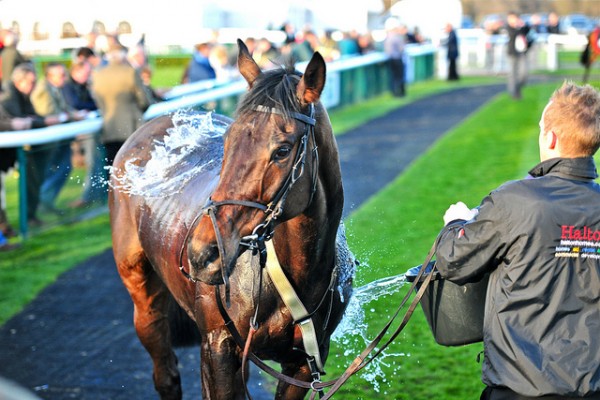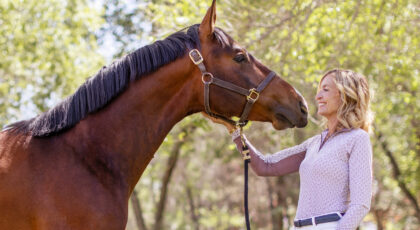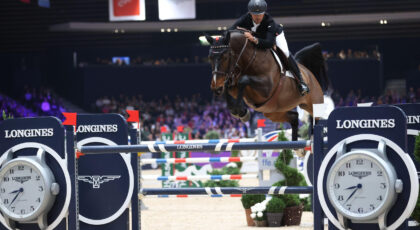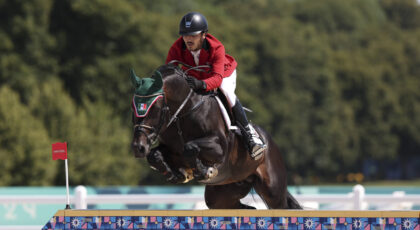Working horses in summer heat creates some significant welfare issues with consequences as severe as death. Research has provided some very valuable information but despite this there are still many myths and misconceptions. It isn’t only upper level performance/racing horses that are at risk. Serious dehydration and overheating can happen to any horse, especially with some of the misinformation out there.

(Flickr/vegaseddie)
“Never let a hot horse drink all they want, or drink cold water.”
Consequences are said to range from colic to founder. This is false. The horse needs to drink as much as desired as soon as possible for maximal rehydration effect. Hot horses will drink from 2 to 5 gallons. If you restrict intake, they will lose some of the drive and will drink less overall.

(flickr.com/Lee Cannon)
“Never hose the horse with cold water.” or “Never put cold water over the large muscles.”
Consequences are said to range from cramping or tying up to heart attack. Again,this is completely false. Body heat is quickly transferred to the water. The colder the wash water, the quicker the horse will cool down.
“Grain makes horses hotter (literally).”
In other words, horses fed grain will overheat easier. The truth is that diet influences body temperature through the heat generated when foods are fermented in the large intestine. Since grains are primarily digested by enzymes in the small intestine, horses fed reasonable amounts of grain and therefore less hay will do less large intestinal fermentation and generate less heat in the intestinal tract.

© 2015 Matthew Atanian Photo/Newport Polo. All Rights Reserved. © 2015 Matthew Atanian Photo/Newport Polo. All Rights Reserved.
“Only very fast/hard work can cause dangerous overheating.”
Not quite. Heavy muscular activity does generate more heat but an important factor is how efficient the energy generation is. A fit horse can perform work generating much less heat that the same level of work would cause when unfit. A fat, unfit horse trotting up a long steep hill could be at more risk of overheating than a racehorse.
“In hot weather you should switch from salt to an electrolyte supplement.”
Wrong, and potentially dangerous. Sodium and chloride, which is salt, are the major electrolytes lost in sweat, followed by potassium. However, the horse has a baseline requirement for salt that is about 1 ounce (28.4 grams) per day even without sweating. This needs to be met first and a typical dose or serving of many electrolyte products does not supply even that much, let alone the baseline plus sweat losses. (For more details, see here.)
Unlimited water both inside and out, lots of salt and care not to work the horse beyond his level of fitness will help you successfully avoid the danger zone in hot weather.
All articles are for informational purposes only. Opinions expressed are not necessarily endorsed by Horse Network. Contact your local veterinarian if you have any questions regarding the health of your animals.
This article originally published at www.uckeleequine.com




 May 18, 2015
May 18, 2015 






























